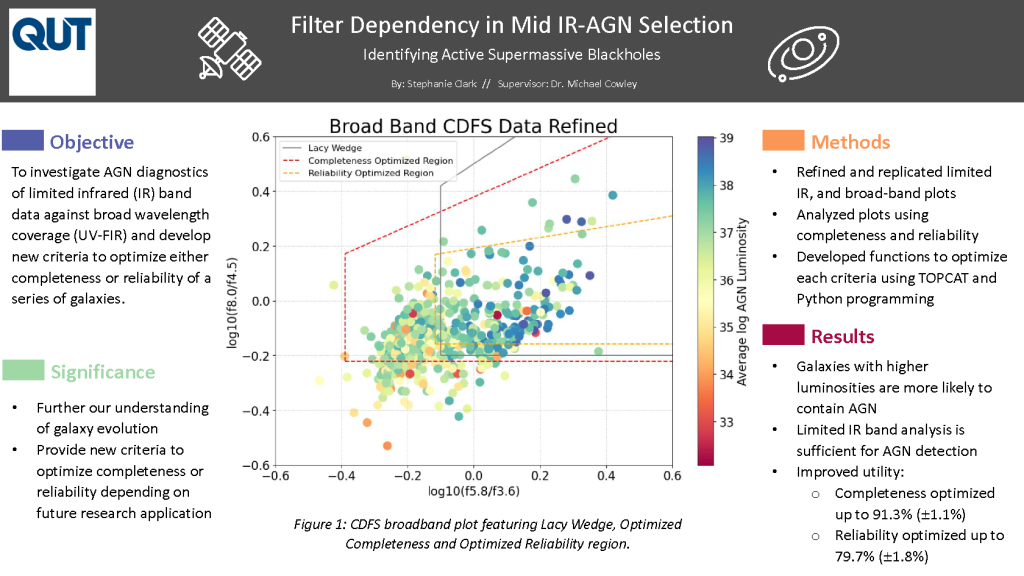Filter Dependency in Mid IR-AGN Selection: Identifying Active Supermassive Blackholes
Stephanie Clark
Supervisor: Dr Michael Cowley
With large all-sky surveys, we are observing more galaxies than ever before, but this comes at the expense of limiting observations to one or a few filter bands. Active galactic nuclei (AGN)—galaxies with supermassive black holes actively accreting matter—are key to understanding galaxy evolution. However, these active galaxies are challenging to identify with such limited data. In this work, we test the effectiveness of AGN diagnostics using limited IR bands compared to full multi-wavelength data (UV-FIR). Our analysis focuses on galaxies within the CDFS region sourced from the ZFOURGE survey. Diagnostic plots, including Lacy and Donley colour-space diagrams, were recreated, demonstrating that limited IR bands achieved AGN detection rates comparable to full UV-FIR datasets, with minor differences of ~2.1% in completeness and ~2.5% in reliability.
To improve utility, we developed new selection regions tailored to optimise either completeness or reliability. The new completeness-focused regions captured up to 91.3% of AGN, representing a significant improvement over traditional Lacy selection, while reliability-focused regions achieved up to 79.7%. These refinements provide flexibility based on end-user requirements. Completeness and reliability fractions, with associated errors, were calculated and validated against full multi-wavelength results derived using supercomputing resources. Extending the analysis to multiple fields, including COSMOS and UDS, revealed no significant discrepancies, further supporting the cosmological principle.
These findings demonstrate that limited IR band data is sufficient for AGN identification while offering a robust framework through refined selection regions to prioritise completeness or reliability, depending on the application.
Media Attributions
- Filter Dependency in Mid IR-AGN Selection: Identifying Active Supermassive Blackholes © Stephanie Clark is licensed under a CC BY-NC (Attribution NonCommercial) license


